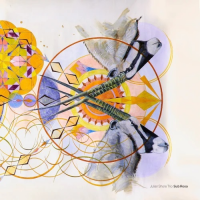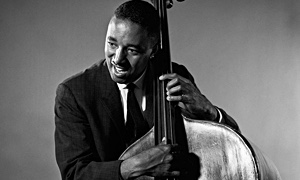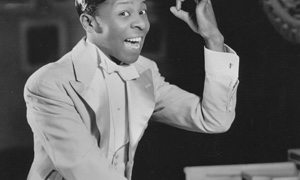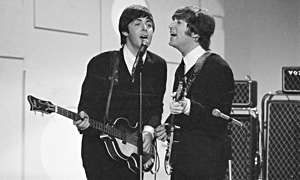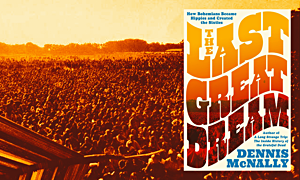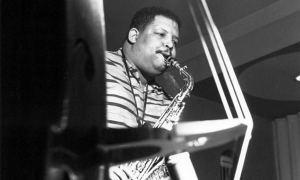Home » Jazz Articles » Book Review » Daniel Beaumont: Preachin°ѓ the Blues - The Life and Time...
Daniel Beaumont: Preachin°ѓ the Blues - The Life and Times of Son House
 Preachin' the Blues: The Life and Times of Son House
Preachin' the Blues: The Life and Times of Son House Daniel Beaumont
Hardback; 224 pages
ISBN: 0195395573
Oxford University Press
2011
Some of the new millennial writing about blues music, such as Elijah Wald's Escaping the Delta: Robert Johnson and the Invention of the Blues (Amistad, 2004) and Ted Gioia's Delta Blues (Norton, 2008), devote a great deal of energy addressing how the blues- scholarship approach of the 1950s and 1960s created the romantic genre of the "delta blues." Indeed the story of Nick Perls, Dick Waterman, Phil Spiro, Stephene Calt, John Fahey and Gayle Wardlow, and their individual and collective efforts to locate and record living pre-war blues artists, is a story in itself, inextricably linked to what would be marketed as "delta blues music."
One outcome of this scholarship has been the recasting of blues guitarist

Robert Johnson
vocals1911 - 1938

Son House
guitar, slide1902 - 1988

Skip James
guitar, acoustic1902 - 1969
Tommy Johnson
tuba1935 - 2006

Eric Clapton
guitar and vocalsb.1945
In the wake of this scholarship comes University of Rochester historian Daniel Beaumont's biography of Eddie "Son" House (1902-1988), Preachin' the Blues: The Life and Times of Son House. House, Patton, James, Tommy Johnson and many others made "race" recordings a decade or more before Robert Johnson, and they may more rightly be considered "seminal" blues musicians, particularly the trio of Patton, House and James. Patton and James have already been the subjects of attentive biographies, Stephen Calt's King of the Delta Blues: The Life and Music of Charlie Patton (Rock Chapel Press, 1988) and I'd Rather Be The Devil: Skip James and the Blues (with Gayle Dean Wardlow) (Chicago Review Press, 1994). It is high time that Eddie "Son" House received the same academic attention.
Beaumont, an associate professor of Arabic Language and Literature, first became interested in House after having prepared a documentary on Rochester musician
Joe Beard
b.1938Beaumont has successfully drawn together all of the writing (articles, books, liner notes, etc.) about House and sifted it into this straight-forward, unflinching biography. He left no stone unturned. He details House's 1930 Grafton recording sessions with Patton and Brown in vivid detail, and the Fisk University/Library of Congress recordings made by

Alan Lomax
producer1915 - 2002
If there is any downside to Beaumont's account it is that he belabors the question of whether House and Charlie Patton actually played together, at the same time, or as two artists "on the ticket." Also consuming a good deal of text is the paradox existing between House's religious leanings and his profligate lifestyle as an itinerant blues musician. Beaumont contends that the existence of these contrasting "belief systems" is what gave rise to House's greatest compositions. This is perhaps overstated. That House behaved like a fallible and inconsistent human being (natural hazards) is hardly a surprise or unique. Humans are riddled with inconsistencies, that being the nature of the beast. Late in House's life, after his rediscovery, he often performed blues and sacred music together, coming to the ultimate realization that the sacred and profane are not mutually exclusive, but part of a continuum.
Tags
Comments
PREVIOUS / NEXT
Support All About Jazz
 All About Jazz has been a pillar of jazz since 1995, championing it as an art form and, more importantly, supporting the musicians who make it. Our enduring commitment has made "AAJ" one of the most culturally important websites of its kind, read by hundreds of thousands of fans, musicians and industry figures every month.
All About Jazz has been a pillar of jazz since 1995, championing it as an art form and, more importantly, supporting the musicians who make it. Our enduring commitment has made "AAJ" one of the most culturally important websites of its kind, read by hundreds of thousands of fans, musicians and industry figures every month.


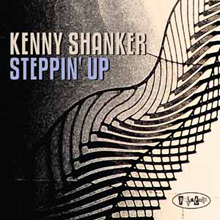


 Buy Now
Buy Now




